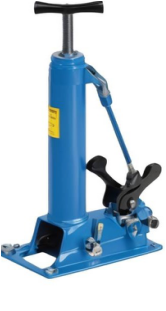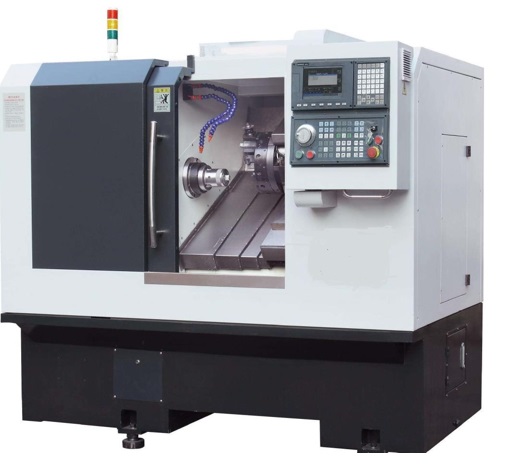Hydraulic Fluids:
-
Non-compressible fluids (usually oil) used to transmit power.
-
Operate using Pascal’s Law – pressure applied at one point is transmitted equally throughout the fluid.
-
Used for precise control and high force applications.
Pn eumatic Fluids:
eumatic Fluids:
-
Use compressed air or gas to transfer energy.
-
Compressible, so less precise than hydraulics.
-
Work on the principle of air pressure and flow – air expands to create motion.
-
Common in fast, light-duty operations.
- Teacher: AUGUSTIN MBONIGABA
This course introduces learners to the principles and practices of producing mechanical parts using Computer Numerical Control (CNC) machines. It covers the fundamentals of CNC machining, including the structure and functions of CNC machines, interpretation of engineering drawings, selection of tools and cutting parameters, and the preparation of CNC programs (G-codes and M-codes). Learners will develop skills in setting up workpieces, executing CNC operations such as turning, milling, and drilling, and applying quality control measures to ensure accuracy and precision of produced parts. The course also emphasizes safety practices, process optimization, and troubleshooting in CNC machining to prepare students for real-world manufacturing environments.

This level focuses on the advanced skills and knowledge required to install, commission, maintain, and troubleshoot industrial machinery used in manufacturing environments. It covers mechanical, electrical, and control systems integration, emphasizing safety, efficiency, and compliance with industry standards.
- Teacher: AUGUSTIN MBONIGABA
This course equips learners with the knowledge and practical skills required to carry out welding on pipes and pressure vessels in accordance with industry standards and safety regulations. It covers the preparation of materials, selection of appropriate welding processes (such as SMAW, GTAW, and GMAW), setting of welding parameters, joint design, and defect prevention. Emphasis is placed on welding safety, handling of pressurized systems, and adherence to quality assurance procedures.
Inclusive methods such as demonstrations, guided practice, simulations, group projects, and blended learning are applied to ensure that all learners actively participate and develop confidence. Upon completion, learners will be able to perform high-quality welds on pipes and pressure vessels, interpret welding specifications, and ensure structural integrity and reliability in various industrial applications such as oil and gas, power plants, and manufacturing.

- Teacher: Jeremie NGIZWENAYO
